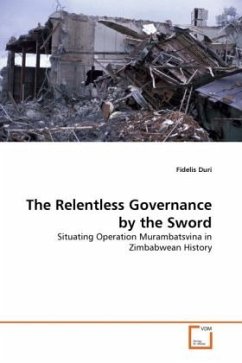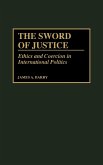Debate has persisted in academic, political and public circles worldwide on the motives behind the ZANU-PF government's Operation Murambatsvina in 2005 during which houses and informal sector structures in Zimbabwe were condemned as illegal after which they were demolished leaving thousands of people homeless and destitute. The government and its apologists justified the operation on grounds of eliminating vice and squalor in the urban and peri-urban areas while independent analysts condemned it as a politically-motivated blitz meant to punish supporters of opposition political parties. These views have largely been reflected in the print and electronic media. This book places Operation Murambatsvina on the academic agenda and asserts that it was the predictable result of ZANU-PF's political intolerance and violence on any form of opposition, a disposition which spanned back to the early 1960s. Besides being a useful source of information to analysts, academics and students in various fields of the Social Sciences and the Humanities, this book also provides interesting reading to those who seek to promote a dispensation of political tolerance in Africa and the world at large.
Bitte wählen Sie Ihr Anliegen aus.
Rechnungen
Retourenschein anfordern
Bestellstatus
Storno








